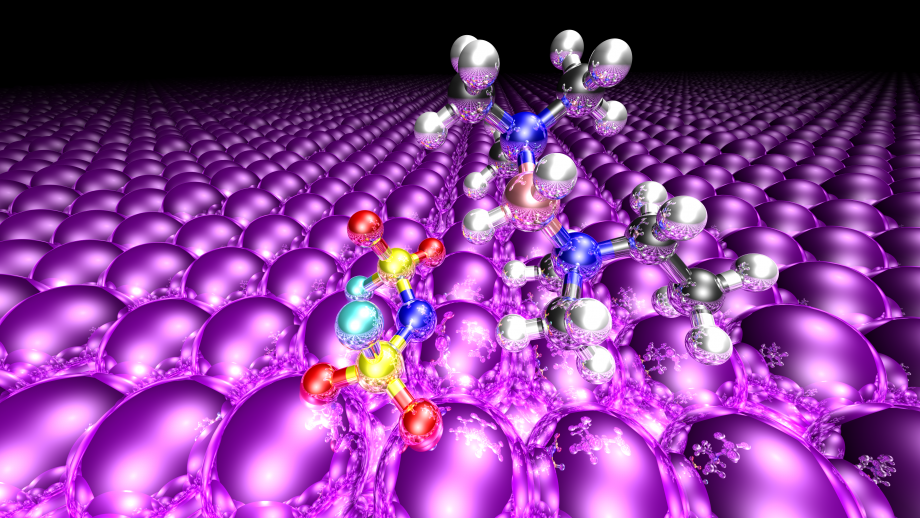This research highlight was originally published in NCI's 2020-2021 Annual Report.
Every item and process in our lives is made up of technologies, discoveries and inventions that have been combined into a useful form. Every advance in creating a new material or method helps us gradually move society forward. In our electrified and energy efficient future world, we will have high-capacity batteries that are lighter and safer than current ones, and energy efficient computers made from silicon variants that have much lower energy consumption for each calculation. Professor Michelle Spencer from RMIT University and the Australian Research Council Centre of Excellence in Future Low-Energy Electronics Technologies (FLEET) is conducting research in these critical areas.
Professor Spencer uses the Gadi supercomputer to understand what is going on inside battery materials at the molecular level. She says, “We can’t see the molecules react under a microscope, but we can predict what will happen with very powerful computers and then test only the most promising reactions in the laboratory.” Predicting molecular interactions is incredibly hard to do. The number of possible movements and interactions for every proton and electron in the system increase exponentially as molecules get bigger and more complex. Modelling even a simple system accurately for a few seconds is already hugely computationally intensive.
The Gadi supercomputer allows the research team to run hundreds of simulations looking at complex, previously unresearched combinations of molecules. Using specialised scientific modelling software running on thousands of processors at the same time, Professor Spencer can avoid wasting experimental time looking into unsuitable candidate materials. Furthermore, simulations allow the research team to learn about why certain behaviours occur in the materials of interest. This provides much greater insight and lets researchers everywhere build on and share their understanding of the fundamentals of the molecular interactions.
Professor Spencer says, “Access to high-performance computers is essential if we are going to design and test new materials on a reasonable timescale. If we are to see exciting new technology like electric passenger planes in our lifetime, then computational chemists working with supercomputers are as essential as the engineers and material scientists at the bench.”
Efficiently searching for new materials that we can use to support a cleaner world requires the processing power and capabilities of supercomputers. NCI and Gadi give Australian researchers the performance they need to understand the fundamental characteristics of some of the materials that will soon power our planes, ships and computers. Molecular interactions control everything about the world around us and how it works. Researchers like Professor Spencer spend their days looking into that fascinating world to develop the advanced materials of our future.
